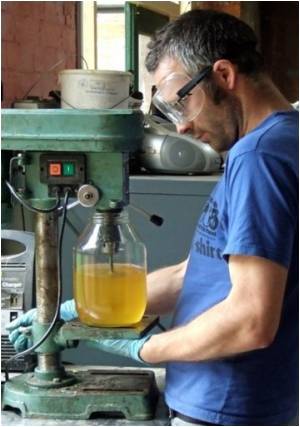Plant genetic advance could lead to more efficient conversion of plant biomass to biofuels, reveals a new study.

The authors stated that the most rigid of the polymers, lignin, represents "a major impediment" to extracting sugars from plant biomass that can be used to make biofuels.
Their genetic advance has been expected to "serve as a foundation for understanding the regulation of a complex, integral plant component" and as a map for how future researchers might manipulate the polymer-forming processes to improve the efficiency of biofuel production.
The three key components, found in plant tissues known as xylem, provide plants with mechanical strength and waterproof cells that transport water. Working in the model plant Arabidopsis thaliana, Hazen, Brady and colleagues explored how a large number of interconnected transcription factors regulate xylem and cell wall thickening.
They also found that each cell-wall gene in the xylem regulatory network was bound by an average of five different transcription factors from 35 distinct families of regulatory proteins. Further, many of the transcription factors form a surprisingly large number of feed-forward loops that co-regulate target genes.
In other words, rather than a series of on-off switches that leads to an ultimate action like making cellulose, most of the proteins including regulators of cell cycle and differentiation bind directly to cellulose genes and to other transcription regulators. This gives plants a huge number of possible combinations for responding and adapting to environmental stress such as salt or drought, the authors point out.
Source-ANI
 MEDINDIA
MEDINDIA




 Email
Email




